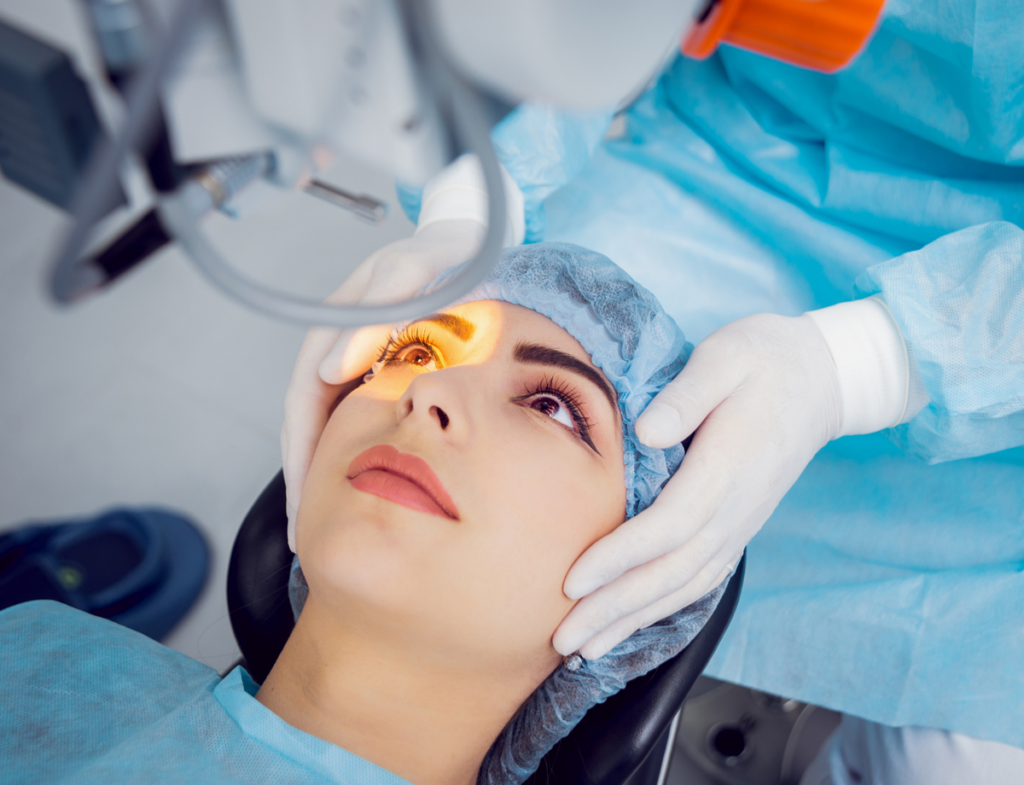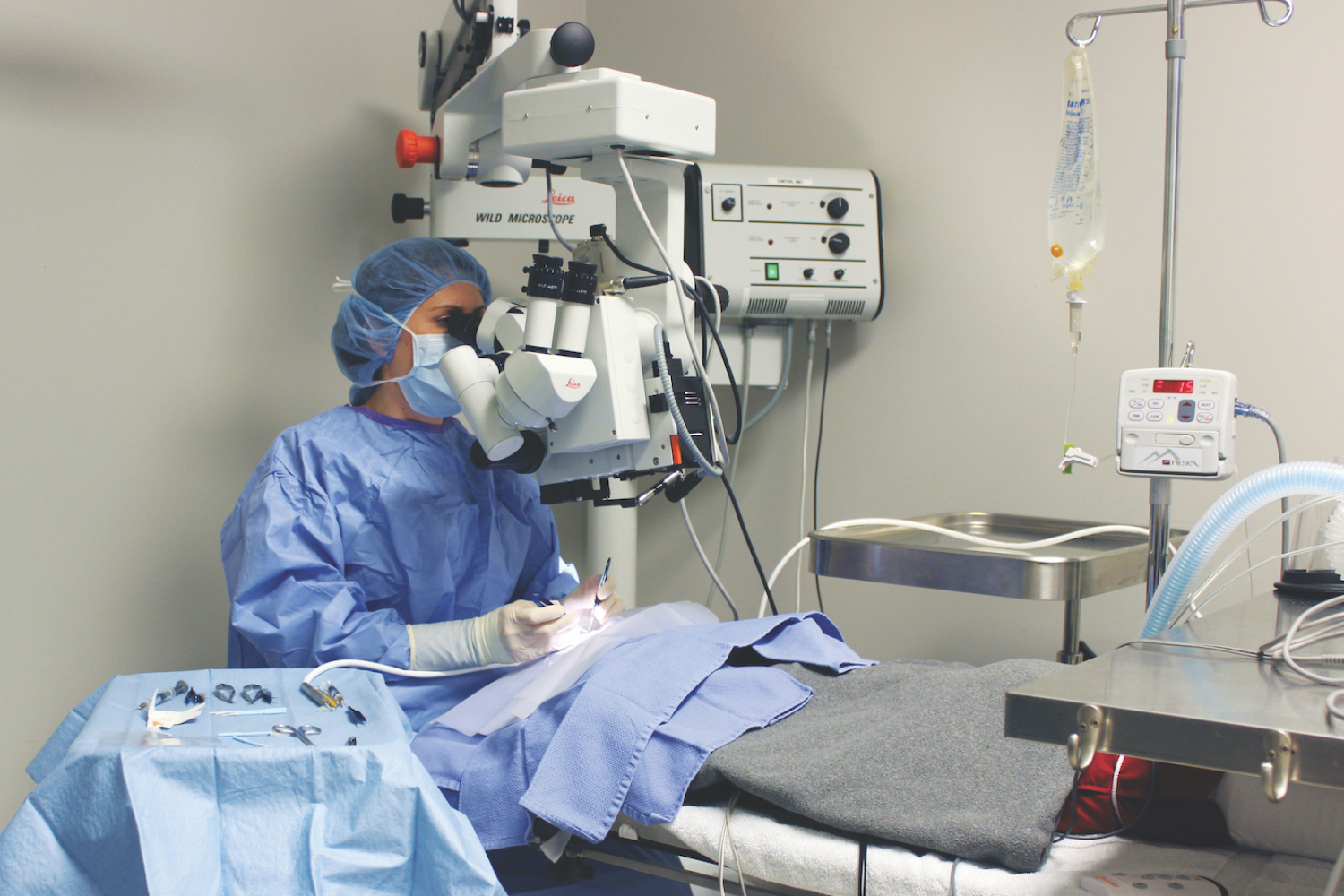Trying to figure out what your choices are for having your eyesight fixed? No one has to accept a life with corrective lenses.
There is a clear reason why eye surgery with LASIK is so popular among those looking into correcting their vision surgically. It’s not hard to understand why eye surgery LASIK is such a popular option; the procedure has a patient satisfaction rating of over 96%.
Refractive defects like nearsightedness, farsightedness, and astigmatism can be corrected by eye surgery using LASIK, giving patients clear vision for the first time in their lives. You may still be a candidate for LASIK eye surgery even if you have astigmatism.
Read on to discover the details of LASIK surgery and the reasons why it may still be possible to have the treatment even if you have astigmatism.

Inaccuracies Caused by Refraction
Light refracts differently as it passes through the cornea, leading to refractive errors. The transparent cornea lies at the front of your eye.
Your cornea is the window to the world, letting light in and allowing vision. The cornea serves as a lens, bending and refractively scattering light as it passes through. The term “refraction” is used to describe the way in which light bends just before it reaches the retina at the back of your eye.
The light enters the eye and is processed by the retina, which lines the back of the eye, before sending impulses to the brain. After that, your brain will interpret the signals as pictures.
A refractive mistake occurs when the cornea isn’t perfectly spherical and light is unable to bend properly. When the cornea is too steeply curved or not curved enough, nearsightedness and farsightedness occur.
Astigmatism presents a unique set of challenges. If your cornea is more oval than round, you may suffer from astigmatism.
Blurred vision with nearsightedness and farsightedness only when an item is too far or too close to the eye. However, if you have astigmatism, you will have blurry vision regardless of distance.
Astigmatism is common among those who are both nearsighted and farsighted. Within specified parameters, a surgery with LASIK can successfully treat any number and kind of refractive problems.
It has a maximum diopter power of 12.00, which means it can correct up to 6.00 of farsightedness, 6.00 of nearsightedness, and 6.00 of astigmatism. Most people who have refractive defects fall within this range, even those with extreme astigmatism.

How LASIK Operates
Knowing how astigmatism impairs your eyesight, we can go on to a discussion of how surgery using LASIK can improve your eyesight. What kind of refractive defects can LASIK eye surgery fix?
In order for LASIK surgery to correct vision problems, the cornea must be reshaped. The femtosecond laser and the excimer laser work together to perform LASIK.
Initial corneal flap creation is performed with the use of a femtosecond laser. The femtosecond laser is used to generate this microscopic flap directly on the cornea’s surface by cutting away all but the hinge.
The excimer laser eye treatment is used to restructure corneal tissue and is the second laser used in the procedure. Under the flap, the excimer laser reshapes tissue in the cornea’s middle layer. Corneal mapping is used in this procedure to gauge how much tissue should be removed.
After the procedure, the flap is restored to serve as a natural bandage and shield the eye from further damage. Eye surgery with LASIK is more advanced than other refractive laser eye surgeries because tissue “within” the cornea is reshaped.
Ultra-Thin Flap Bladeless LASIK is performed by our doctors at Personal Eyes with 80-micron thick flaps, whereas typical LASIK surgery uses 120-micron thick flaps. Our 80-micron ultra-thin flaps improve vision, speed up visual recovery after surgery, and reduce the need for enhancements, all while strengthening the cornea and drastically decreasing post-operative dryness.
LASIK eye treatment is a simple surgery that just takes a few minutes to perform on each eye, despite its somewhat complicated name. Before the vision correction process begins, you will be given eye drops to numb your eyes, so you won’t feel any pain.
Your eyesight will be restored to its former glory, and you may look forwards to its continued improvement for many years to come.

Those Seeking LASIK Surgery
In general, eye surgery with LASIK is a fantastic option for anyone whose refractive defect falls within the approved treatment range. However, there are some other prerequisites that must be met before the treatment can be performed on you.
Patients must be 18 or older, in generally good health, have a stable prescription, and have no other serious eye diseases save a refractive error. Patients must also have corneas that are sufficiently thick to safely generate a flap during laser eye treatment.
Your eye health and corneal thickness will be examined during your consultation at Personal Eyes. Having this knowledge will assist guarantee your safety during the vision correction process.
There are other refractive procedures, including PRK and SMILE, that may be an option if your corneas aren’t thick enough for an eye surgery with LASIK. Even less invasive than LASIK, SMILE has become an increasingly popular surgery in recent years.
There is a limitation to the amount of astigmatism that SMILE can cure, though. Similarly, if you’re farsighted, you won’t be able to have a SMILE.
For those who are either farsighted or have moderate to severe astigmatism, an eye surgery with LASIK is the procedure of choice for their vision correction.
Results from Laser Eye Surgery
It is likely that LASIK eye surgery will correct your vision, even if you have astigmatism. In the end, most people are able to see more clearly without corrective eyeglasses than they ever had before.
The majority of people will get 20/20 or greater vision. Yes, astigmatism sufferers are included in that category.
The corneal flap acts as a natural bandage to aid in the healing process, making the rehabilitation procedure straightforward as well. LASIK’s eye surgery has a widespread acceptance can be attributed to its short surgery and recovery times.
Contact today for your free virtual consultation if you have a refractive defect and wish to live a life unencumbered by glasses or contact lenses. You can get our advice on whether or not an eye surgery with LASIK or one of our other vision correction options is best for you.
Lastly
If you are having any question or inquiry about how to have a correct vision, Laser eye surgery, Corneal tissue problems, Lasik surgery, laser beam in healing process, excimer laser usage, refractive eye surgery, laser treatment, laser suite, contact sports, the surgical procedure for refractive surgery or Lasik laser eye surgery – you should get in touch with us via our Personal Eyes website to book your free assessment today.
More to read: Is it Possible to Get LASIK At an Affordable Rate?
